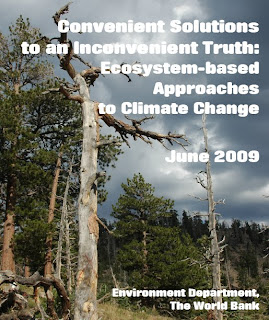The discussions took on a decidedly different tone when retired Rear Admiral Tim McGee spoke of the national security implications - some 30 military bases would be directly affected by a 3' SLR! See the presentations on the CoL website for further details - http://www.oceanleadership.org/ocean-policy-legislation/public-policy-forum/2010-public-policy-forum/presentations/
From a global geo-political perspective, sea level rise and other climate change-related issues become even more profound when one considers impacts on the world's poorest nations.
In 2008 I ran a simulation exercise for the UK, New Zealand, Canadian and Australian Governments on climate refugees displaced by different sea level scenarios - a one meter (3') rise in sea level displaces 43 million coastal residents in South and East Asia alone - after seeing how hard it was for the world to deal with much smaller numbers of people displaced by hurricanes, earthquakes and tsunamis in recent years, one seriously questions just how the world might cope with such unprecedented resettlements and migrations.
A World Bank report released this week highlights those nations at risk globally and gives insights into what is at risk.
The report is available online via: http://issuu.com/world.bank.publications/docs/9780821381267.
Although the report is not solely focused on ocean systems, the report is a cogent reminder of why we should care more about the role of oceans as climate regulators and how they are changing - for example, according to the authors:
- Oceans are the earth’s main buffer to climate change and will likely bear the greatest burden of impacts.
- Oceans removed about 25 percent of carbon dioxide emitted by human activities from 2000‐2007.
- Oceans absorb more than 95 percent of the sun’s radiation, making air temperatures tolerable for life on land.
- Oceans provide 85 percent of the water vapor in the atmosphere, these clouds are key to regulating climate on land and sea.
Those types of investments in building 'social capital' to address climate change mirror knowledge centers such as the recently announced Department of Interior Climate Change and Wildlife Science Center being developed in Anchorage.
I encourage all concerned with the future of the oceans, indeed the future of humanity, to have a closer read of the World Bank report and to stay abreast of developments in these new centers - this is a rapidly developing and increasingly field that demands our increased attention.



No comments:
Post a Comment